A Mexican “muxe” (typically, a homosexual man wearing female clothes) performs on a float in the traditional procession during the Vela de las Intrépidas festival in Juchitán de Zaragoza, Oaxaca, Mexico.
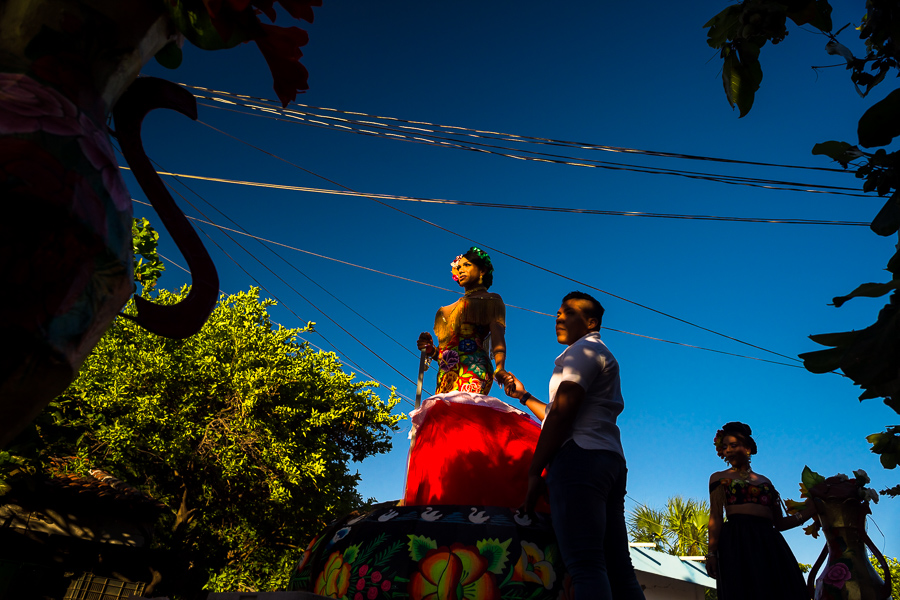

Mexican “muxes” (typically, homosexual men wearing female clothes) put on evening dresses while preparing for the night party during the Vela de las Intrépidas festival in Juchitán de Zaragoza, Oaxaca, Mexico.
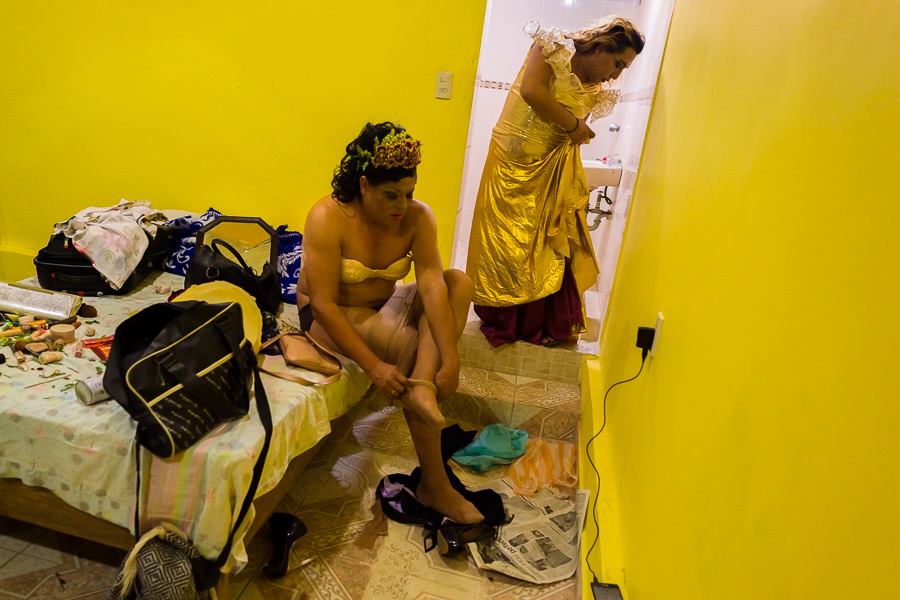

Mexican “muxes” (typically, homosexual men wearing female clothes) speak excitedly during the Vela de las Intrépidas festival in Juchitán de Zaragoza, Oaxaca, Mexico.
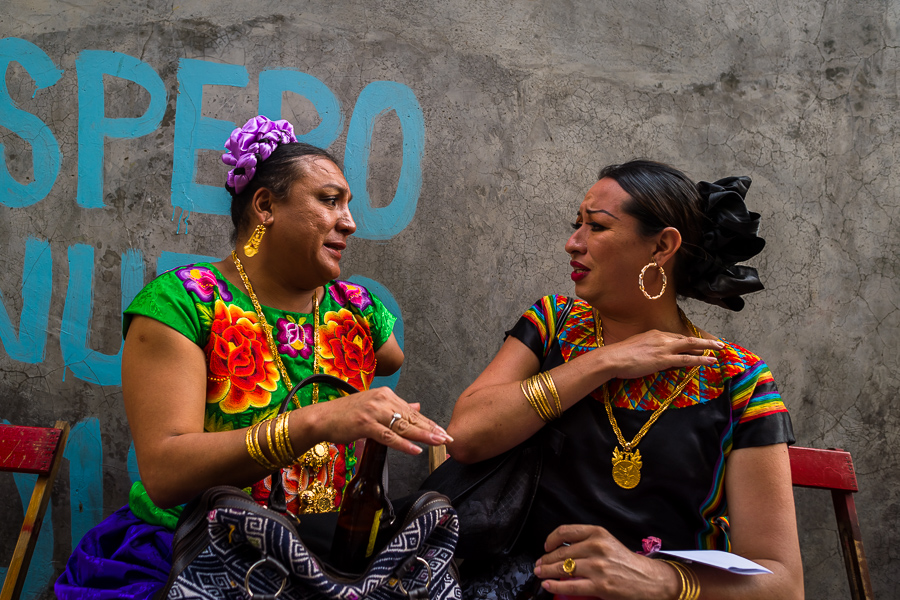

A Mexican “muxe” (typically, a homosexual man wearing female clothes) enters the stage in the night party during the Vela de las Intrépidas festival in Juchitán de Zaragoza, Oaxaca, Mexico.
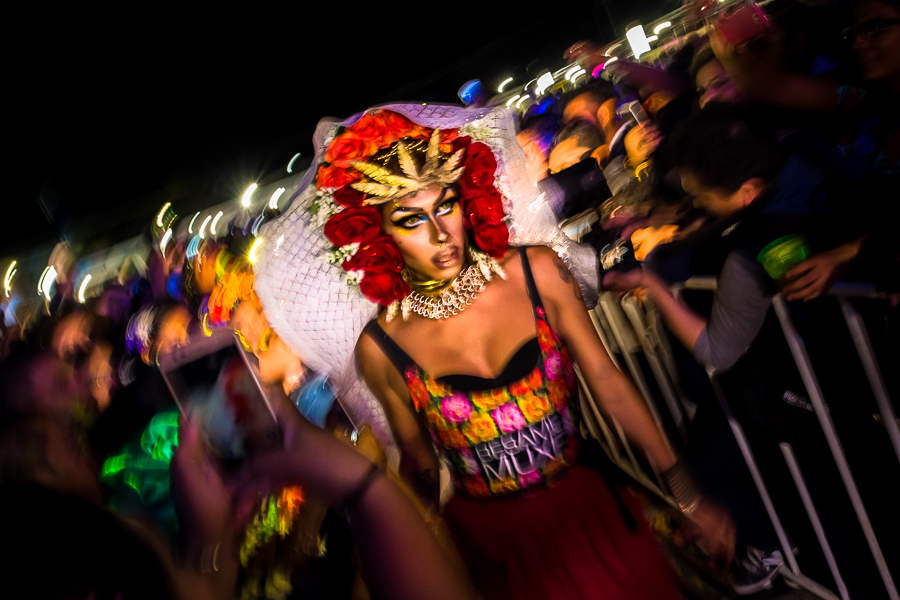

Mexican “muxes” (typically, homosexual men wearing female clothes) take part in the traditional procession during the Vela de las Intrépidas festival in Juchitán de Zaragoza, Oaxaca, Mexico.
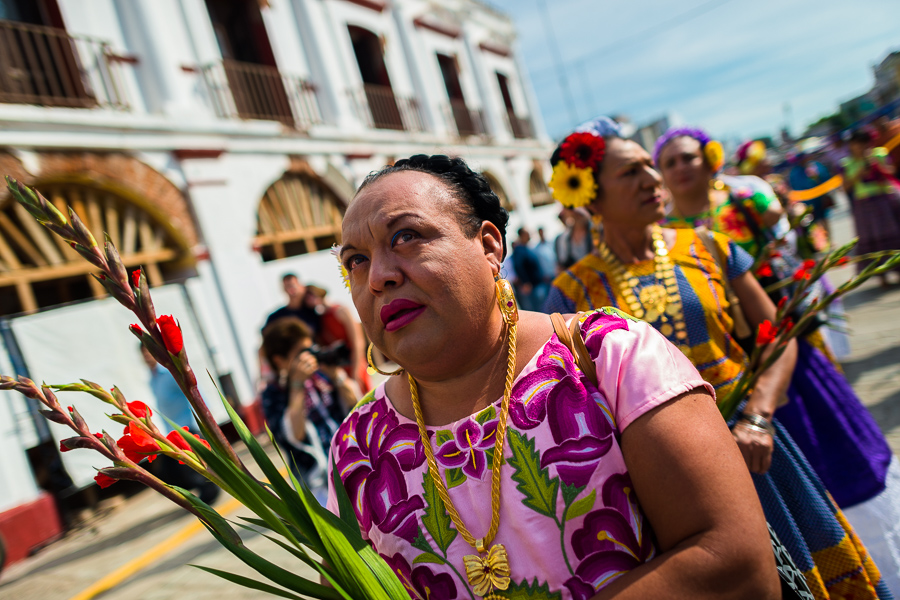

Mexican “muxes” (typically, homosexual men wearing female clothes) take part in the traditional procession during the Vela de las Intrépidas festival in Juchitán de Zaragoza, Oaxaca, Mexico.
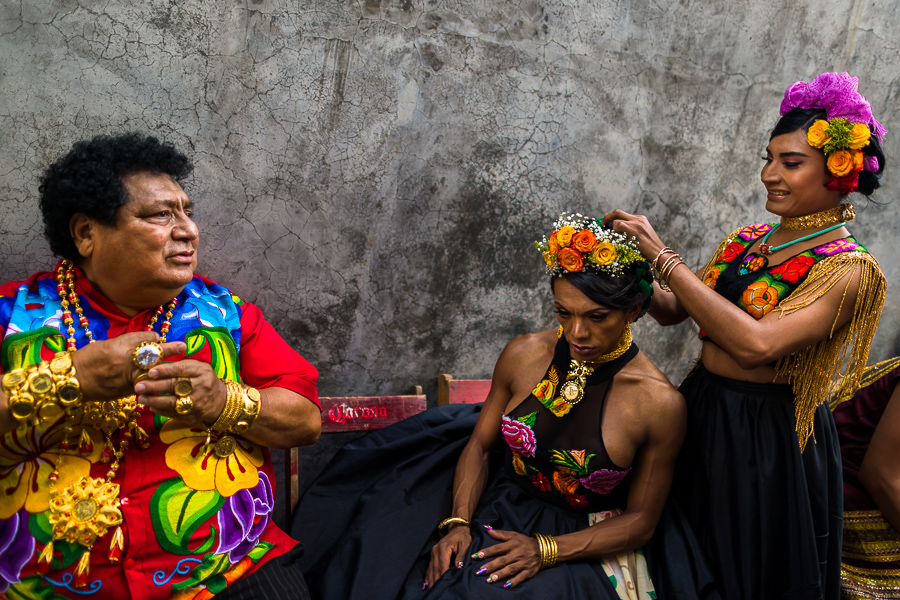

A Mexican “muxe” (typically, a homosexual man wearing female clothes) checks out a large floral headband while preparing for the night party during the Vela de las Intrépidas festival in Juchitán de Zaragoza, Oaxaca, Mexico.
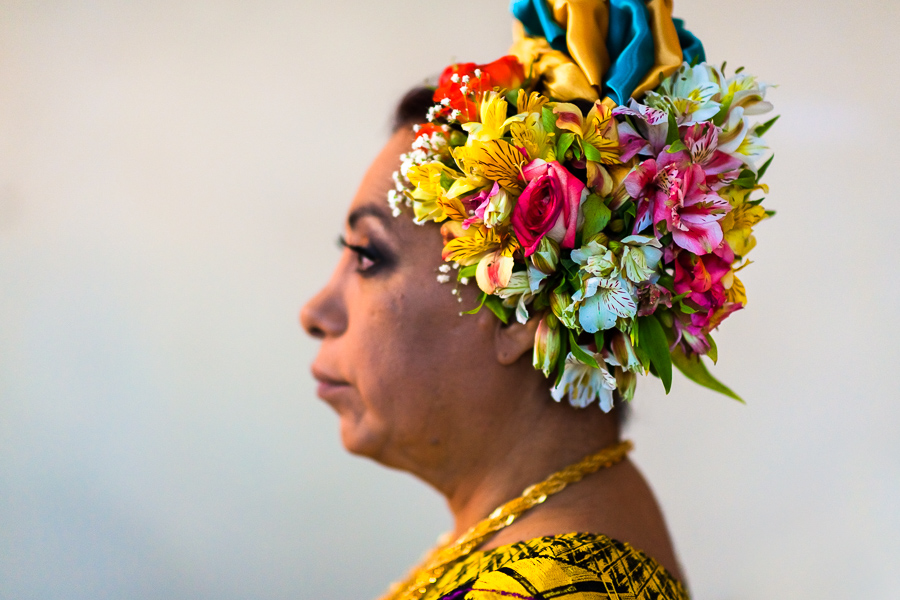

Muxes
Juchitán de Zaragoza, Oaxaca, Mexico – November 2018
In the Istmo de Tehuantepec region of southern Mexico, the Zapotec indigenous society traditionally divides people into three genders: male, female and muxes. The “third gender” (muxes) generally represents those who identify as a different gender than assigned at birth. Muxes are shown respect, they contribute to society as artists, merchants, or they stay at the parents’ home doing women’s work. Although the three gender system originates in pre-Hispanic indigenous culture, the phenomenon of muxes dressing publicly as women started in the 1950s and has been gaining popularity until today.
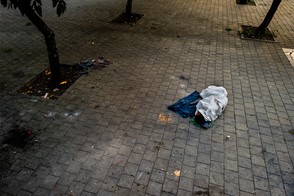
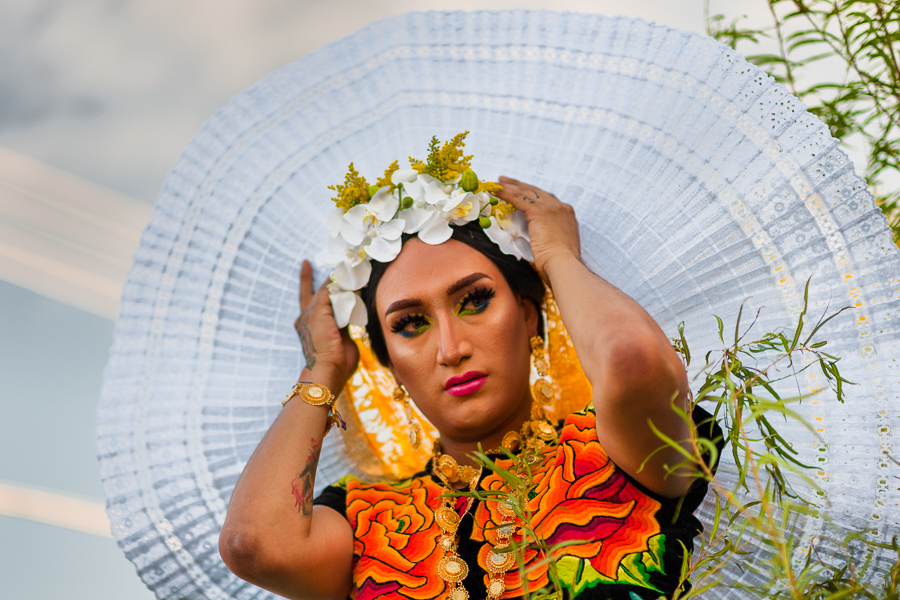
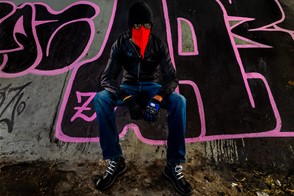
no comments yet